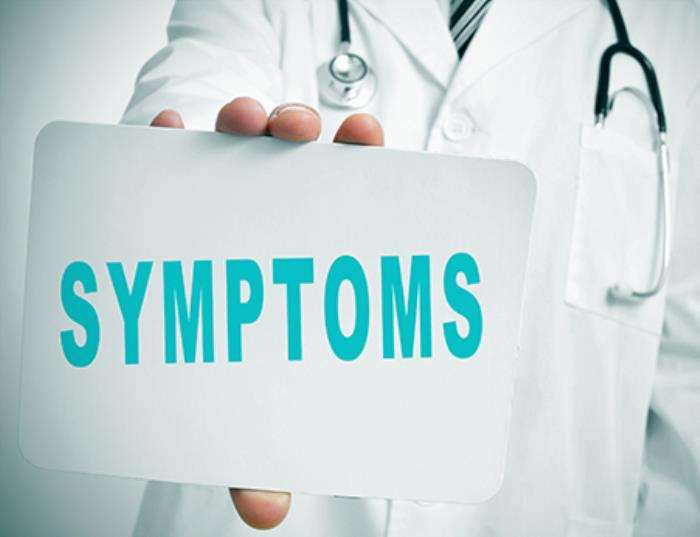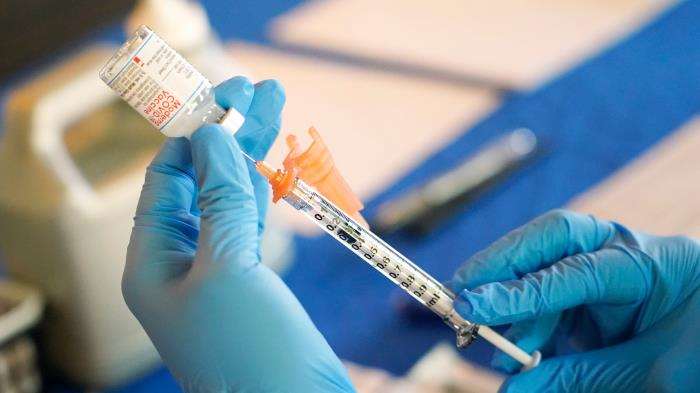A heart transplant is a complex surgical procedure that involves replacing a diseased heart with a healthy donor heart. While this procedure can significantly improve the quality of life for patients with severe heart conditions, it also carries the risk of post-surgery infections. These infections can arise due to factors such as the surgical incision, the use of immunosuppressive medications, and the patient’s overall health status. Understanding these risks is crucial for both patients and healthcare providers to implement effective prevention strategies.
Medical disclaimer: This content is for general awareness and does not replace a doctor’s consultation. For diagnosis or treatment decisions, consult a qualified specialist.
The Importance of Infection Prevention After Heart Transplant
Infection prevention is vital after a heart transplant due to the patient's compromised immune system from immunosuppressive therapy. This therapy is essential to prevent organ rejection but makes patients more susceptible to infections. Post-surgical infections can lead to serious complications, including prolonged hospitalization and increased morbidity. A proactive approach to infection control not only enhances recovery but also improves overall patient outcomes.
Recognizing the Signs and Symptoms of Post-Surgery Infections
Early recognition of signs and symptoms of post-surgery infections is crucial for timely intervention. Common symptoms may include fever, chills, redness or swelling around the surgical site, and unusual discharge. Patients should be educated to monitor their health closely and report any concerning symptoms to their healthcare provider immediately. Prompt identification can lead to early treatment, reducing the risk of complications associated with infections.

Maintaining Proper Hygiene to Prevent Infections
Proper hygiene is one of the most effective ways to prevent infections after a heart transplant. Patients should wash their hands frequently with soap and water or use an alcohol-based hand sanitizer, especially before eating or touching the surgical site. Additionally, maintaining a clean living environment and avoiding crowded places can minimize exposure to pathogens. Family members and caregivers should also adhere to strict hygiene practices to protect the patient.
Follow-Up Appointments and Their Role in Infection Prevention
Regular follow-up appointments with the healthcare team are essential for monitoring the patient's recovery after a heart transplant. These visits allow healthcare providers to assess the surgical site, perform necessary laboratory tests, and adjust medications as needed. Consistent follow-up can help in early detection of any potential infections and ensure that the patient is healing properly. Patients should prioritize these appointments and communicate any concerns during their visits.
Understanding the Role of Immunosuppressive Medications
Immunosuppressive medications are critical in preventing organ rejection but increase the risk of infections. These drugs work by dampening the immune response, making it challenging for the body to fight off infections. Patients should be educated about the importance of adhering to their medication regimen while also being vigilant about potential side effects. Regular blood tests are necessary to monitor the effectiveness of these medications and adjust dosages as needed.
Nutrition and Its Impact on Recovery and Infection Prevention
A well-balanced diet plays a significant role in recovery after a heart transplant. Proper nutrition supports the immune system and promotes healing. Patients should focus on consuming a variety of fruits, vegetables, lean proteins, and whole grains. Staying hydrated is also essential. Additionally, patients may need to avoid certain foods that could pose a risk of infection, such as unpasteurized products or raw seafood. Consulting with a nutritionist can provide tailored dietary recommendations.
Managing Wound Care to Minimize Infection Risks
Effective wound care is critical for preventing post-surgery infections. Patients should follow their healthcare provider’s instructions on how to care for the surgical site. This includes keeping the area clean and dry, changing dressings as recommended, and avoiding activities that may stress the incision. Patients should also look for any signs of infection, such as increased redness or discharge, and report these to their healthcare provider without delay.
Importance of Vaccinations in Post-Transplant Care
Vaccinations play a vital role in protecting heart transplant patients from preventable infections. Due to their compromised immune systems, patients should receive recommended vaccines, such as the influenza and pneumococcal vaccines, before and after the transplant. It is essential to discuss vaccination schedules with healthcare providers to ensure adequate protection while avoiding live vaccines that may pose risks to immunocompromised individuals.

Limiting Exposure to Infections in Public Settings
After a heart transplant, patients should take precautions to limit their exposure to infections in public settings. This includes avoiding crowded places, practicing social distancing, and wearing masks in high-risk environments. Patients should also avoid close contact with individuals who are sick. Being proactive in these situations can significantly reduce the risk of contracting infections.
Utilizing Support Systems for Enhanced Recovery
Support systems, including family, friends, and healthcare teams, are crucial for emotional and physical recovery after a heart transplant. Patients should not hesitate to seek help with daily activities, as this can reduce stress and allow for a more focused recovery. Support groups may also provide valuable resources and shared experiences that can help patients navigate their post-transplant journey.
Understanding the Role of Mental Health in Recovery
Mental health plays a significant role in the recovery process following a heart transplant. Patients may experience anxiety, depression, or stress, which can impact their overall health and recovery. Engaging in mental health support, such as counseling or therapy, can help patients cope with the emotional challenges they may face. It is essential for patients to communicate their feelings with healthcare providers to receive appropriate support.
Identifying High-Risk Activities After Heart Transplant
After a heart transplant, certain activities may pose a higher risk for infections and complications. Patients should avoid high-contact sports, swimming in public pools, and other activities that could expose them to pathogens. Discussing lifestyle changes with healthcare providers will help patients understand which activities are safe and how to gradually return to their normal routines while minimizing risks.
Recognizing the Importance of Sleep for Recovery
Quality sleep is essential for recovery after a heart transplant. Adequate sleep supports the immune system and promotes healing. Patients should establish a regular sleep schedule, create a comfortable sleep environment, and practice relaxation techniques to improve sleep quality. If sleep disturbances occur, patients should consult their healthcare provider for potential interventions.
Managing Chronic Conditions to Reduce Infection Risks
Patients with chronic conditions, such as diabetes or hypertension, should manage these conditions effectively to reduce the risk of infections after a heart transplant. Proper management includes regular monitoring, medication adherence, and lifestyle modifications. Patients should work closely with their healthcare team to develop a comprehensive plan that addresses their overall health and minimizes infection risks.
Educating Family Members on Infection Prevention
Family members play a crucial role in supporting heart transplant patients during their recovery. Educating them about infection prevention strategies is essential. Family members should understand the signs of infection, the importance of hygiene, and how to assist with wound care. By fostering a supportive environment, family members can help patients adhere to their recovery plan and reduce the risk of infections.
The Role of Personalized Medicine in Heart Transplant Success
Discover how personalized medicine enhances heart transplant success. This innovative approach tailors medical treatment to the unique genetic, environmental, and lifestyle factors of each patient, leading to improved outcomes. By minimizing the risk of organ rejection and optimizing post-transplant recovery, personalized medicine is revolutionizing heart transplantation.
Role of Artificial Hearts as a Bridge to Transplant
Explore the significant role of artificial hearts as a temporary solution for patients awaiting donor hearts. Artificial hearts not only stabilize patients with end-stage heart failure but also provide them with the opportunity to regain strength and improve their overall health, increasing the likelihood of a successful transplant surgery.
Utilizing Telehealth Services for Ongoing Support
Telehealth services can provide ongoing support for heart transplant patients, allowing them to communicate with healthcare providers without the need for in-person visits. This can be particularly beneficial for monitoring recovery and addressing any concerns related to infection risks. Patients should take advantage of these services to maintain regular communication with their healthcare team and ensure they are following their post-transplant care plan.
Best Heart Transplant in India
The Best Heart Transplant in India offers a life-saving solution for patients with end-stage heart failure, using advanced surgical techniques and comprehensive post-transplant care.
Best Heart Transplant Hospitals in India
The Best Heart Transplant Hospitals in India provide state-of-the-art facilities, skilled transplant specialists, and multidisciplinary teams for seamless patient care and recovery.
Heart Transplant Cost in India
The Heart Transplant Cost in India is structured to offer affordability while ensuring access to world-class transplant services and comprehensive care packages.
Best Heart Transplant Surgeons in India
The Best Heart Transplant Surgeons in India have extensive experience in performing complex transplants, ensuring precise techniques and personalized patient care for optimal outcomes.
FAQs About Post-Surgery Infections After Heart Transplant
What are the common causes of infections after a heart transplant?
Common causes of infections include bacterial and viral pathogens, often introduced through the surgical site, catheters, or during hospital stays. The use of immunosuppressive medications further increases susceptibility.
How can I tell if I have an infection after surgery?
Signs of infection may include fever, increased pain at the surgical site, swelling, redness, or discharge. Prompt reporting of these symptoms to a healthcare provider is crucial for timely intervention.
What should I do if I suspect an infection?
If you suspect an infection, contact your healthcare provider immediately. Early intervention is critical to prevent complications associated with infections after a heart transplant.
Are there specific foods I should avoid after a heart transplant?
Yes, patients should avoid rawundercooked foods, unpasteurized dairy products, and foods that may harbor bacteria, as these can increase infection risks.
How often should I follow up with my healthcare provider?
Follow-up appointments should be scheduled as directed by your healthcare provider, typically within the first few weeks post-transplant. Regular check-ups are essential to monitor recovery and adjust medications as needed.
Post-transplant rehabilitation programs are vital for improving the recovery and long-term health of transplant recipients. These programs help patients regain strength, improve mobility, and enhance overall well-being. They typically include medically supervised exercise, nutrition counseling, health education, and psychological support. Engaging in these programs can significantly reduce the risk of complications, promote a healthier lifestyle, and improve the quality of life for transplant patients. The Importance of Post-Transplant Rehabilitation Programs
Heart transplantation raises several ethical questions and considerations. These include issues of informed consent, organ donation and allocation, fairness and justice in recipient selection, and the ethical implications of reusing organs. Understanding these ethical aspects is crucial for ensuring that heart transplantation is conducted in a manner that respects the dignity and rights of all individuals involved. Exploring the Ethical Aspects of Heart Transplantation
Heart transplantation in diabetic patients presents unique challenges. These patients are at a higher risk of infection, rejection, coronary artery disease, renal failure, and mortality post-transplant. Managing blood glucose levels and tailoring immunosuppressive therapy are crucial to improving outcomes. Despite these challenges, heart transplantation remains a viable option for diabetic patients with end-stage heart failure. The Challenges of Heart Transplantation in Diabetic Patients